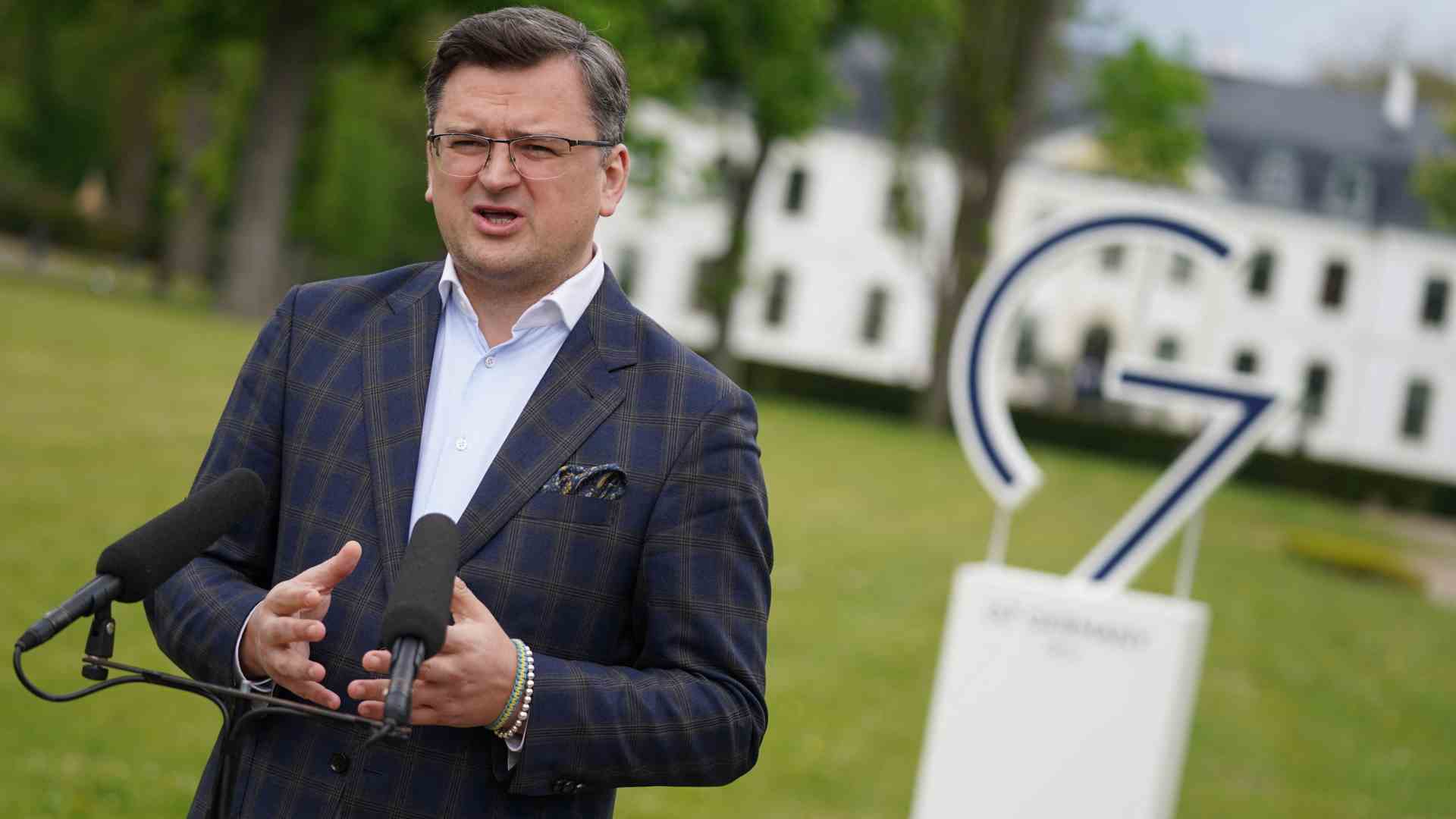Status: 05/13/2022 5:44 p.m
The Ukrainian Foreign Minister Kuleba thanked his G7 counterparts for the help so far – but he also came to the meeting on the Baltic Sea with demands. He is concerned with fighter jets and an oil embargo.
He knows how much his country owes the G7 countries a debt of gratitude. And says so. But at least in one respect, Ukrainian Foreign Minister Dmytro Kuleba remarks, not without pride, that the leading industrialized countries also have something to thank his country for:
“It’s Ukraine that made the G7 strong again. It’s our struggle that gave the G7 back the confidence to lead, shape and ward off attempts by authoritarian regimes to destroy democracy,” he says, with a wink his appearance in front of the press into the sun just breaking through the clouds – the picturesque Weissenhaus Castle in the background.
Kuleba demands fighter jets
However, he also made it clear that his country still has demands on the G7 countries: the Ukrainian praises the fact that a lot has happened in terms of arms deliveries, in particular the howitzers from the USA and Europe would help enormously. But: “We will only have enough weapons if we win this war. As long as this war lasts, supplies should continue.”
Specifically, Ukraine is demanding multiple rocket launchers and support for its air force, i.e. fighter jets, to defend against the Russian war of aggression. At the G7 meeting, Foreign Minister Annalena Baerbock had already hinted that from the German point of view this would go a step too far.
EU gives another 500 million euros
EU foreign policy chief Josep Borrell avoided the fighter jet issue as much as possible, but announced that the EU would provide Ukraine with a further 500 million euros in military aid. These new millions would be made available for “heavy weapons,” said the EU’s chief diplomat. The total amount of EU aid would then be two billion euros. However, the member states of the European Union still have to agree.
How to solve the naval blockade?
In the far north, Baerbock pointed out that Putin’s war is not only being fought with military equipment: “This hybrid war is not only one of tanks and missiles, of fake news and propaganda, but it is also a ‘food war’ that we already seen around the world.”
And so one of the dominant questions at the joint meeting with the foreign ministers of Ukraine and the Republic of Moldova was how to break the Russian naval blockade that prevents Ukrainian wheat from leaving the ports – with devastating consequences, especially for distressed countries in Africa .
There are no easy answers: If one wanted to transport wheat by land instead of by sea in the future, only significantly smaller quantities could be shipped out of the country. Talks with Russia on the food issue have so far come to nothing, said the Ukrainian Foreign Minister.
Kuleba calls for oil embargo again
Kuleba also had an urgent message for the EU: namely, to include an import ban on Russian oil in its next package of sanctions: “If this package is passed without an oil embargo, President Putin can celebrate.” Then it would be the first time that the unity of the EU would break down, the minister said.
But one thing is clear: neither the European Union, nor NATO, nor the G7 want to show weakness in the face of the Russian war of aggression.
G7 – Guns, Wheat and Words
Kai Küstner, ARD Berlin, currently Weissenhaus, May 13, 2022 5:00 p.m

